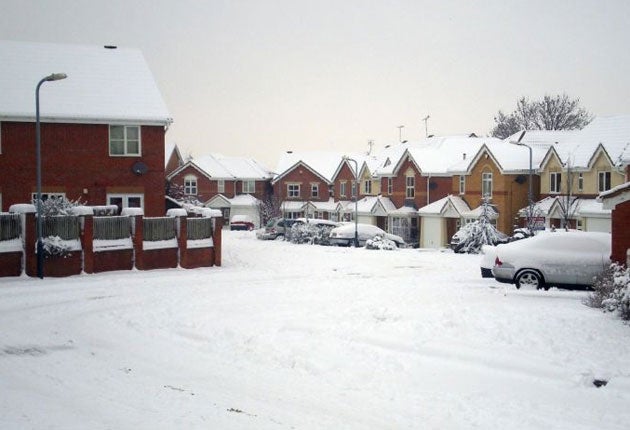You can’t lose with this fund, but will you win?
Kate Hughes looks at a scheme where investors can cash in on long-term growth in property prices

To make any money out of property, many of us assume that you have to own one – and given the current state of the market, that’s a risky bet. But one type of investment seems to give 100 per cent security on your money and the potential for a huge bonus on top.
The newly launched Bricks & Mortar plan from Arc Capital & Income is the latest in a long line of so-called structured products. It offers a guarantee on your investment as well as a commitment to match any increase in the Halifax House Price Index, with 30 per cent on top, at the end of its six-year term. So if the index rises by 40 per cent, you get your capital back plus that 40 per cent and a further 30 percentage points, giving you a total of a 70 per cent return. If the index falls, you just get your capital back at the end of the term.
To offer this deal, the underlying investment is divided into two elements. The first part, conferring the capital protection, is a bond issued by one of the big high-street banks; this matures in six years to coincide with the end of the term. That means you would lose your original money only if the bank failed, which is highly unlikely but not impossible in this economic climate.
The other part of the investment is based on movements in the Halifax House Price Index. Put simply, this cash is put in an exchange traded fund that will pay out should the index rise over the next six years.
And that leads to the question of how much further house prices have to fall in this crash. “The short-term view of the residential market remains confused,” says Christopher Powell, managing director of Arc. “The Halifax reported a 1.9 per cent increase in house prices in January but Nationwide indicates further weakness. There is clearly a strong demand for residential property and so it seems likely that this, and an increase in the funds available as the lenders recover their stability, will fuel housing prices once more.”
However, the speed of the current downturn is dramatic, with Lipper, the financial information firm, reporting that house prices have fallen by almost 20 per cent since August 2007. Six years is a long time, but after the last property crash it took 10 years for prices to recover. If the market still has a long way to fall and doesn’t recover to today’s value in six years, you will make nothing on your investment.
Money put into this scheme qualifies for individual savings account status, which means growth is tax-free. But you can only invest up to £7,200 in an ISA in any one financial year. If you want to invest more, returns will be subject to capital gains tax.
Meanwhile, those who need to withdraw their cash before the end of the six-year term face a hefty £150 (plus VAT) penalty.
“This product is very inflexible and few investors are happy to tie their money up without access for six years,” warns Danny Cox from independent financial adviser Hargreaves Lansdown. “Ask any property investor and they will tell you that it is an income- generating investment. This product pays no income, so you miss out on perhaps the most important part of your return.
“Alternatively, investing in a property fund would give you the potential for capital growth and income at the same time.”
However, property funds tend to invest in commercial rather than residential property and many advisers warn that this type of investment could be in for a bad 2009, after a 30 per cent drop over the past two years.
Subscribe to Independent Premium to bookmark this article
Want to bookmark your favourite articles and stories to read or reference later? Start your Independent Premium subscription today.

Join our commenting forum
Join thought-provoking conversations, follow other Independent readers and see their replies